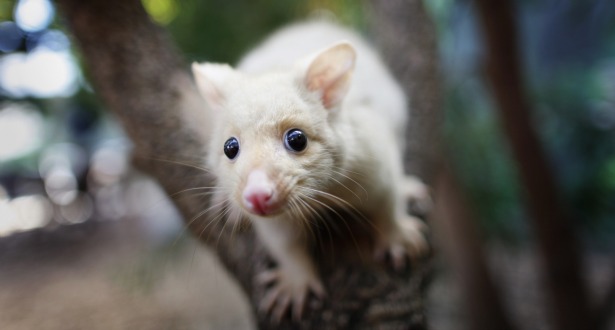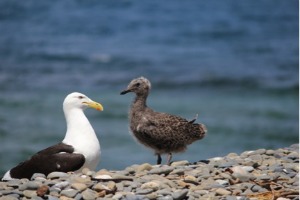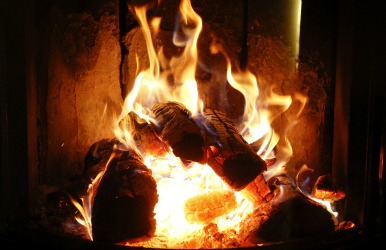New Zealand's War on 30 Million Possums
Possums invaded what they thought was an island paradise. Now numbering near 30 million in a country the size of Colorado, they are hated with a passion fueled by national identity and bovine tuberculosis.

It sucks to be a possum in New Zealand. Cars swerve to hit you. Guns point toward you. People feed you little green pellets that taste like cinnamon, only afterwards they taste like poison death. Plus, no one ever gets your name right.
But if you are a possum, brace yourself: it's about to suck more. New Zealanders are rallying to launch an all-out war against their furry foes, following a scientist's dying vision for a "Pest-Free New Zealand." Those pests include (take a breath): rabbits, rats, weasels, cats, stoats, goats, deer, and hedgehogs ... but mostly, possums. "It's a pretty easy sell," said zoologist Nicola Toki, a passionate supporter of the plan who works for the Animal Health Board. "We relate our national identity to our native wildlife. And everybody hates possums."
Islands make up 3 percent of the world's landmass, yet they harbor a massive fraction of its species. Many of those species are uniquely vulnerable to invaders, e.g. possums. To wipe out mammals on islands as big as those of New Zealand would be "a huge challenge," said Dan Simberloff, an invasion biologist at the University of Tennessee. But if they pull it off? "It'd be the greatest triumph of invasion management the world has ever seen." In other words, New Zealand could serve as a beacon of hope to threatened biodiversity hotspots worldwide, like Hawaii and the Galapagos islands.
Possums have been a thorn in New Zealand's side since the day they arrived. That's because, for 80 million years, this South Pacific nation was a land of birds -- flapping, singing, deafening, glorious. "The most melodious wild musick I have ever heard," journaled Captain Cook's botanist, Joseph Banks, in 1770. Then Europe brought the invasive species.* Off the boat they scampered, into what must have seemed like possum paradise: a green Eden filled with tender trees and land-dwelling birds more tasty than hasty.

Massacre was swift. Today, many consider possums Public Enemy #1. It isn't that they're more destructive than, say, cats (which we now know are secret serial killers); they aren't. It's that there are 30 million of them in a country the size of Colorado. They chomp on wide swaths of forest, kill millions of birds and chicks a year, and go around spreading bovine tuberculosis to cows. "They've whittled our wildlife away," Toki said mournfully. Plus, they're Australian.
For these reasons, New Zealand has been chipping away at their demise. It's managed to clear possums and other mammals from more than a hundred offshore islands. It's created wildlife havens ringed with fences, where the spotted kiwi once again waddles in peace. There's even a campaign called Million Dollar Mouse, started by cat-hater and economist Gareth Morgan, that aims to remove rodents from the Antipodes Islands.
What would it take to tackle the mainland? "It would be a military operation," predicts Charles Daugherty, an ecology professor at Victoria University who joined Toki at a radio forum called "Kill a Stoat, Save New Zealand" last August. The government already rains thousands of pounds of a controversial poison onto hard-to-reach forest every year, just to keep pests at bay. To kill them all, Toki imagines "a series of rolling fronts" consisting of guns, traps, and more poison.
Such a feat won't be cheap: a government report last month put it north of $25 billion. But don't underestimate how much New Zealand loves its wildlife. Every morning, the country tunes in to Radio NZ for a special minute of birdsong before the news. There is a "national appetite" to return the country to its original avian paradise, Daugherty said. And many believe it could be done. After all, New Zealand has been leading the world at killing things for 25 years.
When it can, though, it tries to do so humanely. After all, are possums not also of the kingdom Animalia, class Mammalia? Are not their bodies four-legged, their hearts four-chambered? If you suckle them, do they not lactate? If you prick them, do they not warmly bleed? "Just because they're a pest doesn't mean we shouldn't be concerned with minimizing their distress," said Kate Littin, a government adviser on animal welfare.
Plenty of New Zealanders couldn't care less what a possum feels. But some do. Littin wants the example her country sets for the world to be one of "compassionate conservation." After researching the effects of the poisons used on rats and possums, she helped come up with a framework of relative humaneness for pest control that's now being used on rabbits across Australasia. "It's not a revolution," she said. "But it's an evolution."
Pestilence is in the eye of the beholder. Cross the Tasman Sea, and you'll find possums in their native land, a rare species under national protection. In fact, there's a mountain brushtail possum at the Australia Zoo who's most likely getting mobbed for photos and fed grapes right now. She's a twitchy thing, a pink nose framed by a halo of charcoal fur. Her name is Hope.
Go back to New Zealand, and hope is a different animal. It rests on poison, traps, and a whole lot of death. Pest-free is still a goal of the future -- 20 years, minimum. But its champions are ready to begin. "Let's start today," declared Toki in August. "Let's say that's what we want to do, and let's all go home and snot some small furry animal."
*This post initially referred to "rodents," in reference to multiple invasive species. This includes possums, which are not rodents, but marsupials. We regret the error. As an additional point of clarification, what Aussies and New Zealanders are talking about is a different animal from what Americans would think of when they hear the name "possum."
